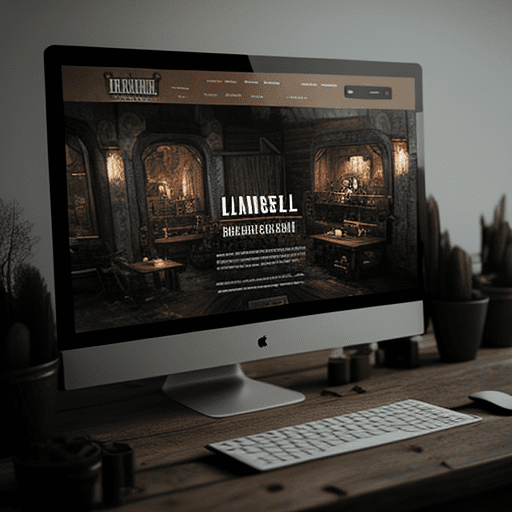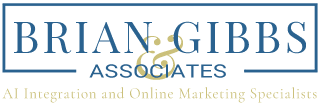Essential Types of Digital Marketing Assets You Need

The digital world can be overwhelming.
Are you a local business owner looking to enhance your online presence and reach a wider audience? In today’s digital age, having a strong online presence is crucial for the success of any business. But with so many different types of digital marketing assets out there, it can be overwhelming to know where to start.
In this article, we will break down the different kinds of online promotional assets that local businesses can use to their advantage. We’ll explain what they are, why they’re important, and provide examples to help you understand how they work in practice. By the end of this guide, you’ll have a clear understanding of the various Internet marketing assets available to you and how they can benefit your business.
Define digital marketing assets
First, let’s define what we mean by “digital marketing assets.” These are the various types of digital content that businesses use to promote their services or products online. Examples include social media posts, blog articles, email newsletters, videos, and more.

Online assets are like tools in your toolbox.
Think of these assets as tools in a toolbox. Just as a carpenter wouldn’t use a hammer to saw wood, different sorts of internet promotional assets are used for different purposes. Some assets are better suited for building brand awareness, while others are designed to drive sales or generate leads. By understanding the purpose of each asset, you can use them strategically to achieve your business goals.
Throughout this guide, we will explore the different types of marketing assets you need, their purpose, and how you can use them effectively to grow your local business. So, let’s get started!
Understanding Digital Marketing Assets
What are digital marketing assets?
Digital advertising assets are the various types of digital content that businesses use to promote what they do online. These assets can include anything from social media posts, blog articles, and videos to landing pages, email marketing, and more.
Every digital asset you create should have a clear purpose and be part of a larger marketing endeavor. These assets are designed to support your online marketing measures, and they should all work together to help you achieve your business goals.
Types of digital marketing assets
There are many different types of online promotional tools, and each one has its own unique purpose. Here are some of the most common types of Internet assets that local businesses can use to promote their brand:
- Social media is a powerful tool for building brand awareness and engaging with potential clients. By creating and maintaining social media accounts on platforms like Facebook, Twitter, and Instagram, you can share updates, news, and promotions with your followers and build a loyal community around your brand.
- Content marketing focuses on creating valuable, informative, and engaging content to attract and retain potential consumers. This can include blog posts, videos, infographics, and more. By creating high-quality content that provides value to your audience, you can establish your business as an authority in your industry and build trust with potential clients.
- Email marketing campaigns involve sending targeted emails to potential clients. These emails can be used to promote what you do, provide valuable information, or build brand awareness. By using email marketing effectively, you can build a list of engaged subscribers who are more likely to convert into paying customers.
- Landing pages are designed to encourage visitors to take a specific action, such as signing up for a newsletter or purchasing a product. By creating landing pages that are optimized for conversions, you can increase the effectiveness of your marketing and generate more leads and sales.
- Search Engine Optimization is the practice of optimizing your website and content to rank higher in search engine results pages. By using targeted keywords, creating high-quality content, and optimizing your website for search engines, you can increase your visibility online and attract more potential buyers to your business.
These are just a few examples of digital marketing of the many sorts of Internet assets that local businesses can use to promote their brand and attract possible customers. By understanding the purpose of each type of asset and using them strategically as part of a larger marketing agenda, you can maximize the effectiveness of your marketing efforts and achieve your business goals.

Online marketing has advantages over traditional methods.
Digital vs. Traditional Marketing Assets
When it comes to marketing your local business, you have two main options: traditional marketing methods and digital marketing methods. Traditional marketing methods include print ads, billboards, and television commercials, while digital marketing methods include social media marketing, content marketing, and email.
Difference between digital and traditional marketing assets
The primary difference between traditional and digital promotion lies in their delivery and consumption. While traditional promotional efforts are typically distributed through physical channels like newspapers, magazines, and billboards, digital promotional content is shared through digital channels like email marketing, social media, and websites.
Another key difference is the ability to measure and analyze the efficacy of your promotional strategies. It can be challenging to track the return on investment (ROI) of traditional promotion, whereas digital promotion provides more comprehensive data and insights into the performance of your promotional efforts. This allows for data-driven decision-making and real-time optimization of promotional content.
Advantages of using digital tools over traditional marketing methods
One of the most significant advantages of digital marketing is the potential to reach a wider audience. As more people spend time online, digital promotional tools have become the most effective way to attract potential customers. By utilizing various digital strategies, such as search engine optimization (SEO), email marketing, and social media advertising, you can broaden your audience and increase your chances of generating leads and sales.
Another benefit of digital marketing is the ability to target specific demographics. Traditional marketing methods can make it difficult to reach the right audience, whereas digital marketing can be more precise by using data and analytics to identify the most effective channels and types of promotion.
Online promotional tools are also cost-effective compared to traditional marketing methods. Printing and distributing flyers or buying ad space on television or radio can be expensive, while creating and promoting content on social media or sending targeted email promotions can be much more affordable.
Online marketing assets allow for greater interactivity and engagement with potential customers in real-time. Social media platforms, for instance, allow businesses to respond to customer inquiries and feedback instantly, which can enhance trust and loyalty with their audience.
The advantages of digital tools over traditional methods are clear. By leveraging digital strategies, businesses can reach a wider audience, target their promotional efforts more effectively, and have greater control over their marketing initiatives. Incorporating a mix of various types of online promotional tools in your marketing endeavors can help your business remain competitive and relevant in the digital age.

How are you doing with your asset management?
Digital Asset Management
Proper management of digital items such as advertising collateral, social media profiles, domain names, and other resources is crucial in digital marketing. This refers to the organization, storage, and distribution of online assets you need to boost your marketing efforts.
Effective management can help businesses save time, reduce costs, and improve the quality of their online materials. By arranging your online resources in a logical and easy-to-navigate manner, you can streamline your marketing actions and reduce the risk of losing or misplacing important marketing materials.
Tips for organizing your resources and management tools
When it comes to organizing your online resources, here are some tips to get you started:
- Categorize your resources: Organize your marketing assets into categories that are relevant to your business, such as social media profiles, email templates, graphics, and videos.
- Use consistent naming conventions: Ensure your resources have consistent naming conventions to make it easier to find what you need quickly.
- Choose a central location: Store all your resources in a central location, such as a cloud-based storage system, to make it easy to access them from anywhere.
- Use management tools: There are many management tools available that can help you organize and manage your digital resources more effectively, such as Adobe Experience Manager, Bynder, and Widen Collective.
Effective management can help businesses save time, reduce costs, and improve the quality of their marketing materials. By organizing and managing your resources effectively, you can streamline your marketing measures and improve the effectiveness of your efforts.
Using Digital Marketing Assets for Business
Digital resources are powerful tools that can help companies increase their online presence, attract and retain customers, and ultimately boost revenue. These resources include social posts, email newsletters, blog posts, videos, infographics, and more.

A website is an essential digital tool.
One of the most effective resources for local businesses is their website, which can help them establish their brand identity, build credibility, and provide a platform for customers to interact with their offerings. Social media profiles are another valuable resource that businesses can use to engage with customers and promote their products or services. Email marketing can help build relationships with customers and advertise special offers or promotions.
To maximize the value of these resources, it’s important to use them strategically. Businesses should start by identifying their goals and target audience and then choose the resources that will best help them achieve those objectives.
If you’re unsure which resources to use, consider seeking the advice of a marketing expert or agency. These professionals can help you create a comprehensive digital marketing strategy that incorporates the best resources for your business.
Online resources can help businesses reach a wider audience, target their marketing efforts more effectively, and measure the effectiveness of their marketing endeavors. By utilizing digital resources strategically, businesses can create powerful online campaigns that engage their target audience, driving conversions and ultimately boosting revenue.
Conclusion
In today’s digital age, having a strong online presence is crucial for businesses of all sizes. These assets are a key component of modern strategies, enabling companies to reach a wider audience, target their efforts more effectively, and measure the effectiveness of their marketing.
Various types of digital resources, such as social media profiles, email campaigns, and search engine optimized content, can help businesses build a strong online presence and engage with their target audience in meaningful ways. Additionally, digital management tools can play a crucial role in organizing and managing resources more efficiently.
Looking ahead, it’s clear that online promotional tools will remain a vital part of marketing strategies. With technology constantly advancing and more people spending time online, businesses that don’t invest in these resources may struggle to compete in their industry.
Therefore, it’s important for businesses to stay up-to-date with the latest digital marketing trends and strategies and to incorporate a variety of resources into their branding campaigns. By doing so, companies can remain competitive and relevant in the ever-evolving digital landscape.
FAQs
- What are some common mistakes businesses make when it comes to online asset management? Answer: Some common mistakes businesses make with online asset management include not having a clear organizational system in place, failing to keep digital assets up-to-date, and not having a secure backup system in case of data loss.
- How can businesses measure the effectiveness of their online assets? Answer: Businesses can measure the effectiveness of their online assets by tracking metrics such as website traffic, social media engagement, email open and click-through rates, and conversion rates.
- What is the role of online assets in building brand awareness? Answer: Online assets play a crucial role in building brand awareness by providing businesses with a platform to showcase their products or services and engage with their target audience. This helps build credibility and establish a strong brand identity.
- What are some emerging trends in digital marketing assets? Answer: Some emerging trends in digital marketing assets include the use of chatbots and voice search optimization to improve customer engagement and the use of augmented and virtual reality in advertising campaigns to provide more immersive experiences.
- How can businesses ensure their digital assets are accessible to individuals with disabilities? Answer: Businesses can ensure their digital assets are accessible to individuals with disabilities by using alt-text for images, providing closed captions for videos, and ensuring that website design is compliant with web accessibility guidelines such as the Americans with Disabilities Act (ADA). Additionally, businesses can conduct user testing with individuals with disabilities to ensure that their digital promotional assets are truly accessible.

